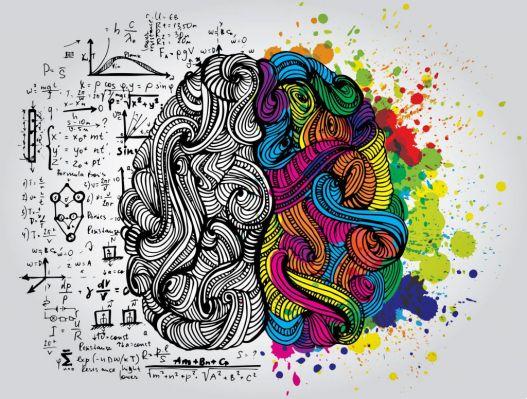Self-esteem is linked to self-love, which is our ability to like ourselves and it is a very precious thing, as it avoids the incessant search for security and for the recognition of what is external, which only causes suffering, since nobody, or anything, is bound to meet our needs.
Our brain is a very powerful machine capable of incredible things, where more than 85 billion interconnected neurons form synapses responsible for our abilities. It is the basis of our intelligence, which is what differentiates us from animals. We are rational.
In a basic and very simplified way, our brain has a very important outer layer, called the Cerebral Cortex, divided into some parts: Temporal Lobe, responsible for emotion and memory; Frontal Lobe, responsible for our judgment and reasoning; Parietal Lobe, responsible for our body orientation and interpretation of sensations; Occipital Lobe, responsible for vision; below comes the Cerebellum, which is the structure linked to our balance, and finally the Hippocampus, which is the area of our memories.
Within the hippocampus are the tonsils, two very important small structures that, together with hormones, form our limbic system and are responsible for our quick emotional responses, those that we take without thinking, on impulse, in the face of risk or unpleasant situations, often in an effective emotional hijacking. .

No limbic system, more specifically in the tonsils, which are not the ones in the throat, emotional memories are registered, those that give us the feeling of liking or disliking something or someone, without even knowing why... surface, like a trauma, an abuse, a beating, a loss… it's all stored there.
In an analytical therapeutic process, we work on understanding past events, forgiving others and ourselves, new ways of acting, all through the use of reason, but we also need to rescue these memories associated with emotion so that they can be re-signified, abreacted. and released, otherwise the patient will always react in the same way to something that updates these well-guarded contents. Resolving conflict on the surface would be like drying ice, which is why I love psychoanalysis. Let's go straight to the basement cleaning! Haha. It hurts yes, but it's effective and liberating!
Back to the limbic system… in the hippocampus are the memories in fact. Emotional memories reside in the amygdala. And they work together. People who have had tonsil tumors may lose emotional records and find it difficult to relate and connect with other people.
Now speaking of childhood, which is where it all begins, the limbic system is the structure linked to the formation of self-esteem, of learning to like oneself.
Around 18 months to two years of age, this system begins to function sharply, at the time of child development that we call the Anal Phase.
The limbic system is our protection system, which as we have already seen, is formed by the cerebral amygdala, hippocampus, hormones, there in the Cerebral Cortex. It is a defense system activated when we lose pleasure or get out of our homeostasis, our emotional balance. At this age, it's common for parents to complain about the terrible phase their children are going through and bring a complaint about the child being rude, disobedient, disobedient... which is all true, and the Limbic System is responsible! Haha.
But calm down, because this is a very good thing, because it is at this stage that the child is forming his identity and, therefore, he
begins to say “no”, because the recognition of herself and also of the other begins to happen. It is the “why” phase, the “it is mine” phase, of egocentrism, so necessary to the formation of your identity.
It's tiring, but it's normal!
When the child's limbic system is activated, when he is contradicted in something pleasurable, he becomes a "difficult" child and yet he needs to realize that he is accepted and loved. That's how she learns to like herself and that's what will make her a secure person, with stable self-esteem and emotionally independent from the recognition of others.

But that doesn't mean letting her do whatever she wants, quite the opposite. At this stage, it is very important for the child to realize that he is being cared for by an adult, and that he has command authority over him, and that despite his “tantrums” he continues to care for and love him.
The ideal would be for parents, who also have a limbic system, to have mental health, minimally enough to withstand these events, not be shaken by tantrums to the point of equating to the mental age of children in a Homeric squabble on equal terms… lol .
Given an order to the child that contradicts it, it is important to be firm, but allow the child's limbic system to function and complete its cycle. No telling you to shut up or swallow your crying... let the cycle complete and let it pass. Soon, the child who received limits firmly and with love from the parents, will realize that despite her having behaved badly, life goes on and everything is normal, and these parents will reap the fruits of a healthy and happy child in every way!
Yes, it's a challenging responsibility, but understanding that it's a natural mechanism of neurological and emotional maturation, it's easier!
Once this phase is over, we will have a few years off for the parents until the limbic system starts working at full load again in adolescence! Each stage, a stage!
A series on child development is on its way to help dads in this beautiful challenge of caring and educating!
See you later!
You may also like other articles by the author. Access: Basic Children's Manual - Basic Concepts (Text 1/6)

























